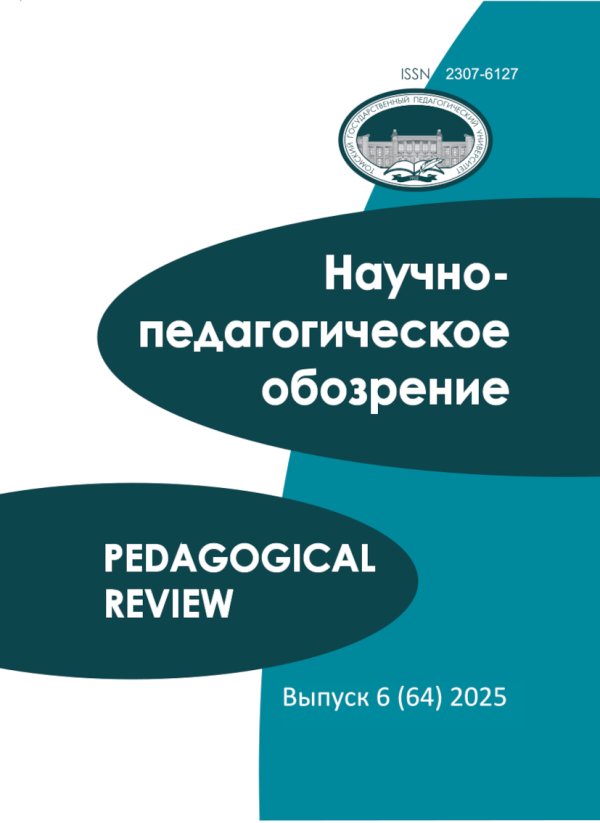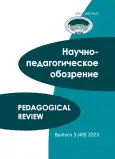№ 3 (2023)
ОБЩЕЕ И ИНКЛЮЗИВНОЕ ОБРАЗОВАНИЕ
Педагогическое сопровождение детей дошкольного возраста с особыми образовательными потребностями: к постановке проблемы
Аннотация
 7-16
7-16


Использование схем в логопедической работе с младшими школьниками-билингвами
Аннотация
 17-27
17-27


Эмоциональная грамотность и методы ее формирования у подростков и юношества
Аннотация
 28-34
28-34


Особенности организации профессиональных проб обучающихся в учреждениях интернатного типа
Аннотация
 35-41
35-41


ВЫСШЕЕ ОБРАЗОВАНИЕ
Использование интерактивных онлайн-сервисов в иноязычной профессиональной подготовке студентов
Аннотация
 42-50
42-50


Методический потенциал конкретной поэзии в обучении иноязычной письменной речи
Аннотация
 51-57
51-57


Организация адаптационной языковой подготовки в техническом вузе в период пандемии
Аннотация
 58-66
58-66


Подготовка студентов гуманитарных вузов к использованию информационных технологий
Аннотация
 67-77
67-77


ПРОБЛЕМЫ ВОСПИТАНИЯ
Проект «Карта Победы»: сладкая продукция томской кондитерской фабрики «Красная звезда» в годы Великой Отечественной войны
Аннотация
 78-85
78-85


Гуманитарно-антропологический подход как основа организации профессионального воспитания представителей профессий служения
Аннотация
 86-93
86-93


Развитие умений самоанализа профессиональной деятельности педагогов
Аннотация
 94-100
94-100


Использование кейс-метода для интенсификации обмена знаниями между педагогами
Аннотация
 101-108
101-108


ПСИХОЛОГИЯ
Взаимосвязи шкал дефицитарного страха и актуального самовосприятия студентов во время самоизоляции
Аннотация
 109-121
109-121


Ассертивное поведение студентов управленческого профиля
Аннотация
 122-129
122-129


Возможности использования психолого-педагогических условий консолидации школьного коллектива в процессе подготовки будущих лидеров Национальной технологической инициативы
Аннотация
 130-139
130-139


Трансспективный анализ как метод историко-психологического исследования
Аннотация
 140-149
140-149


Виртуальное и реальное пространство современной белорусской молодежи: социально-психологический контекст
Аннотация
 150-159
150-159


Интерпретация теоретического происхождения «психологического образования» в китайских университетах
Аннотация
Являясь одной из трех недавно добавленных подсистем в новую эру идеологического и политического образования Китая, психологическое образование является отличительной чертой текущей работы по обучению психическому здоровью в китайских университетах, которая содержит три теоретические основы: теорию свободы человека и всестороннее развитие, теорию развития гуманистической психологии и теорию счастья в позитивной психологии. Только полностью разобравшись и разобрав его теоретическую основу и стремление к текущим ценностям, а также обеспечив прочную теоретическую основу для развития образования в области психического здоровья в университетах, он может действительно играть руководящую роль на практике.
 160-166
160-166












